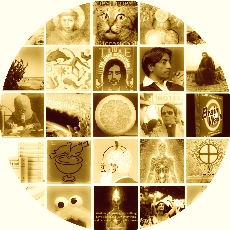Redan Émile Durkheim talade profetiskt om ett framtida samhälle som är så heterogent att det enda som till slut förenar medborgarna är det faktum att alla uppfattar sig själva och alla andra som autonoma individer. Durkheim ska enligt Hammer (2004) ha uttryckt att religiösa utövare kommer ”att som religionens kärna sätta upp principen att vara sann mot sig själv” (s. 313). Houtman och Aupers (2007) menar att religiositeten har ändrat karaktär:
What we are witnessing today is not so much a disappearance of religion, but rather a relocation of the sacred. Gradually losing its transcendent character, the sacred becomes more and more conceived of as immanent and residing in the deeper layers of the self (Houtman & Aupers, 2007, s. 315).
Farias och Lalljee (2005) har formulerat begreppet ”holististic individualism” för vissa fynd i sin forskning. De menar att något sådant kännetecknar även många som inte intresserar sig specifikt för den nya andligheten:
The construct of holistic individualism has been identified in relation to the New Age but it is plausible to find it applied elsewhere. An obvious example is the growing interest in spirituality within modern societies, a concept that overlaps in many ways with New Age ideas in the way it emphasizes non-ordinary experiences at the individual level and distances itself from communal forms of religion. It may be the case that holistic individualism is a social-cultural phenomenon of which the New Age is merely a precursor” (Farias & Lalljee, 2005, s. 288).
Kärfve (1998) skriver att ”New Age tolkar något essentiellt i det senmoderna samhället och följaktligen kommer att stanna så länge detta består” (s. 28). Frisk (2000) refererar till de amerikanska religionsvetarna James R. Lewis och J. Gordon Melton, som uttryckt att de ser new age som ”an integral part of a new, truly pluralistic ’mainstream'” (s 52).
